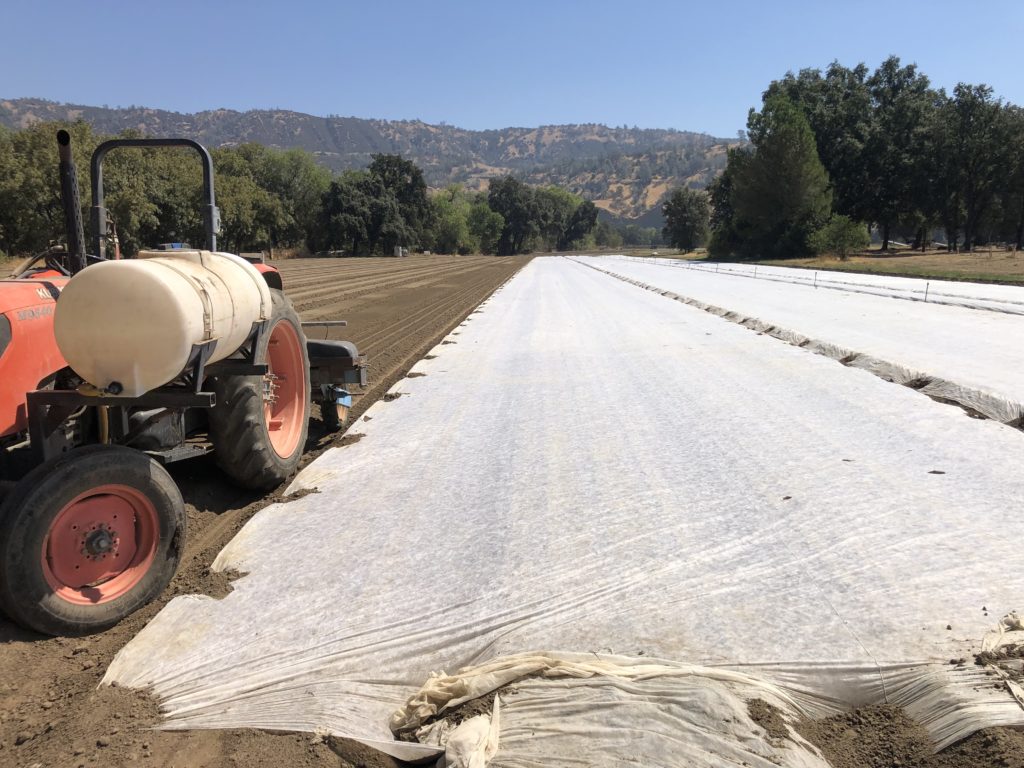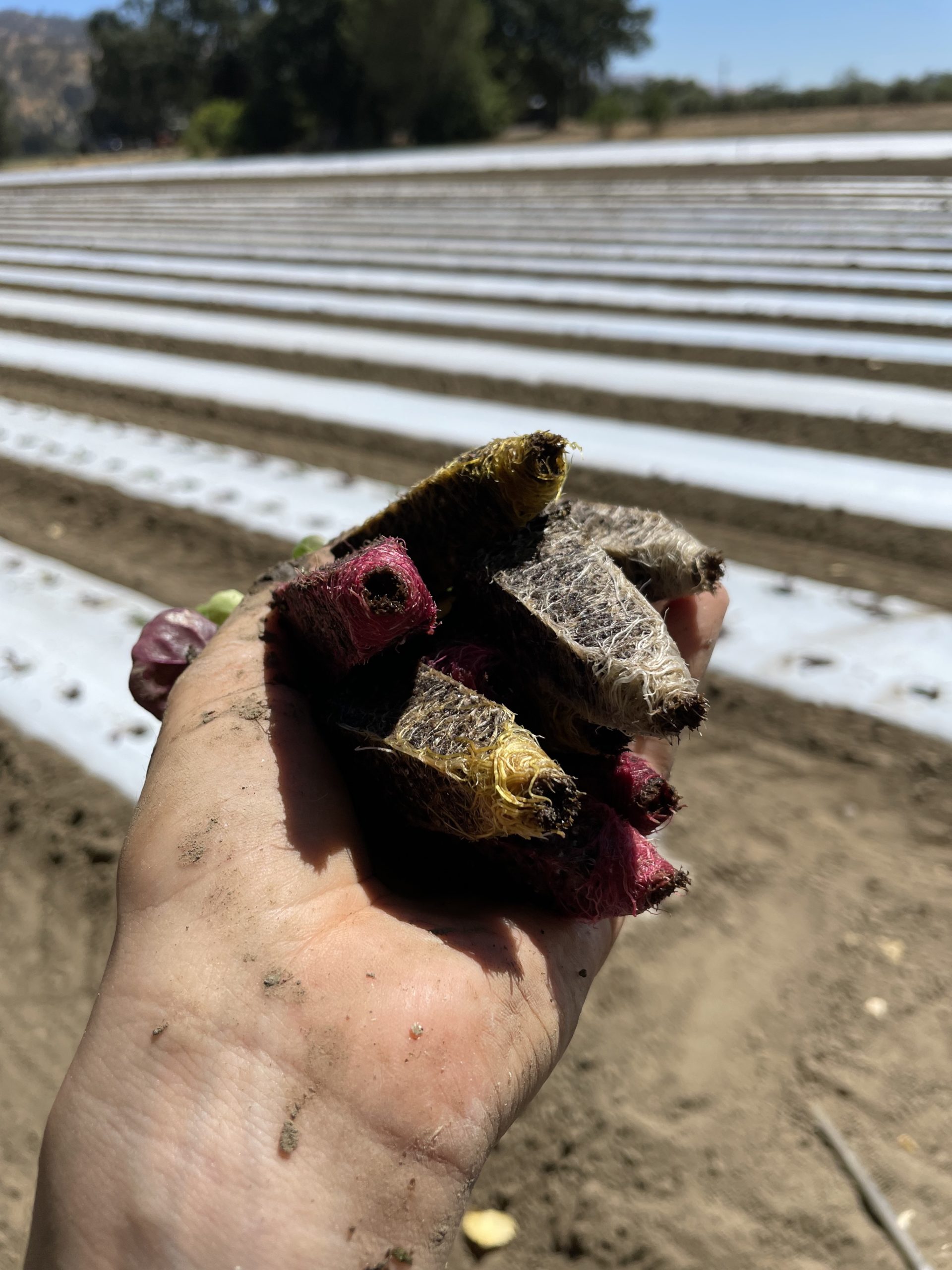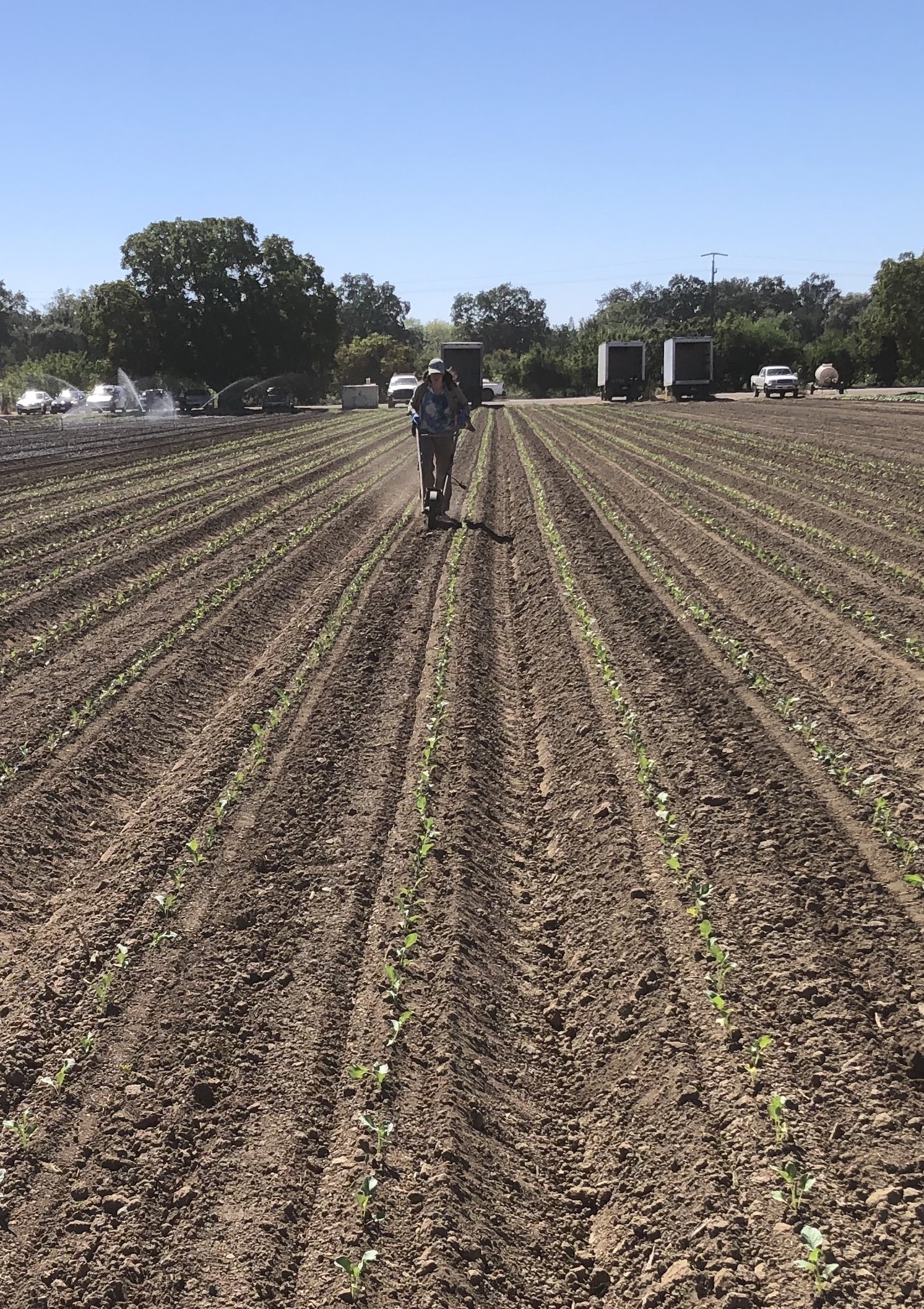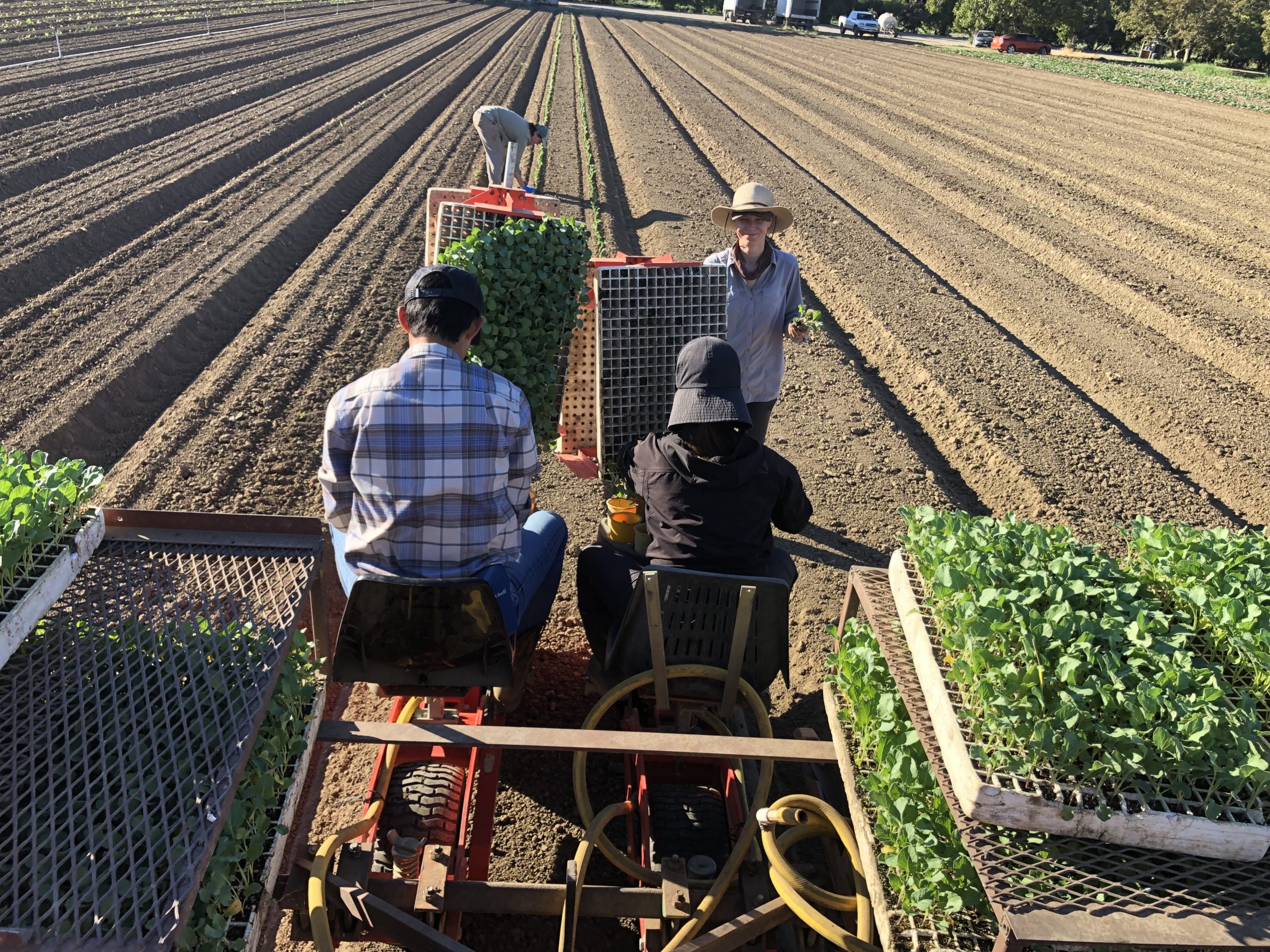What’s the news from the farm?
We are working this Labor Day Monday, as we do every Monday (we’ve got Tuesday CSA deliveries, store deliveries, and a farmers market) though we did take Saturday off. This week is going to be a series of scorchers – 110 and above every day. We’re prioritizing everyone’s health and will likely try and wrap up as early as possible to get folks out of the heat, which means limiting orders.

Unfortunately the plants can’t come out of the heat. We’ve got the carrots under row cover to provide a little shade and help keep in moisture.

We’ve started to cut and cure winter squash! It’s too hot to even think about eating them right now, but they are ready to be harvested. We cut the squash from the plant, then leave them to cure in the field for a few days. This allows some of the excess water in the squash to evaporate, concentrating flavors, and it hardens the skin, which helps with long-term storage.

And we’re thinking about lots of other fall crops – we’ve been transplanting fall crops like collards, chard (like in the picture above – aren’t the colorful roots neat?), and broccoli. The collards and chard were transplanted into plastic mulch. Using the mulch helps with water conservation, weed control, and plant growth. The plants grow better because they’re less stressed and the white or silver mulch reflects light back up at the plants. Last year we were able to harvest chard 23 days after transplanting, which was a record. We don’t like using all the plastic but the plants grow much better and thinking about our overall climate impact, not using the plastic has an impact too. The mulch reduces the number of tractor passes for weeding and the amount of water we need to pump, both of which are energy intensive and rely on fossil fuels. Plus, we don’t have water to spare.

The broccoli wasn’t planted into mulch. This photo shows Marie direct seeding an insectary mix after transplanting before starting to irrigate. The mix includes buckwheat, clover, and cowpeas, among other things. This mix will attract many beneficial insects that will eat the non-beneficial insects that prey on our broccoli. We used to plant sweet alyssum in our insectary mix because it is a good nectar source for several beneficials, like syrphid flies, but it’s also a favorite of bagrada bug, a serious pest of concern due to the amount of damage they can cause brassica and mustard family crops.
Stay cool everyone!
– Elaine Swiedler, CSA Manager
Thanks to Andrew Brait and Marie McDonald for the photos

